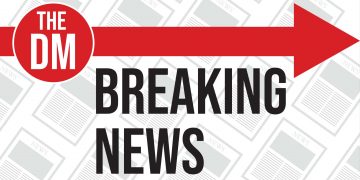On Friday, March 4, several University of Mississippi administrators and student leaders spoke at the State of the University Forum as part of the weekend’s Black Alumni Reunion. The forum was held from 3-5 p.m. in Butler Auditorium in the Triplett Alumni Center and was moderated by Teresa Jones, a student at the University of Mississippi School of Law.
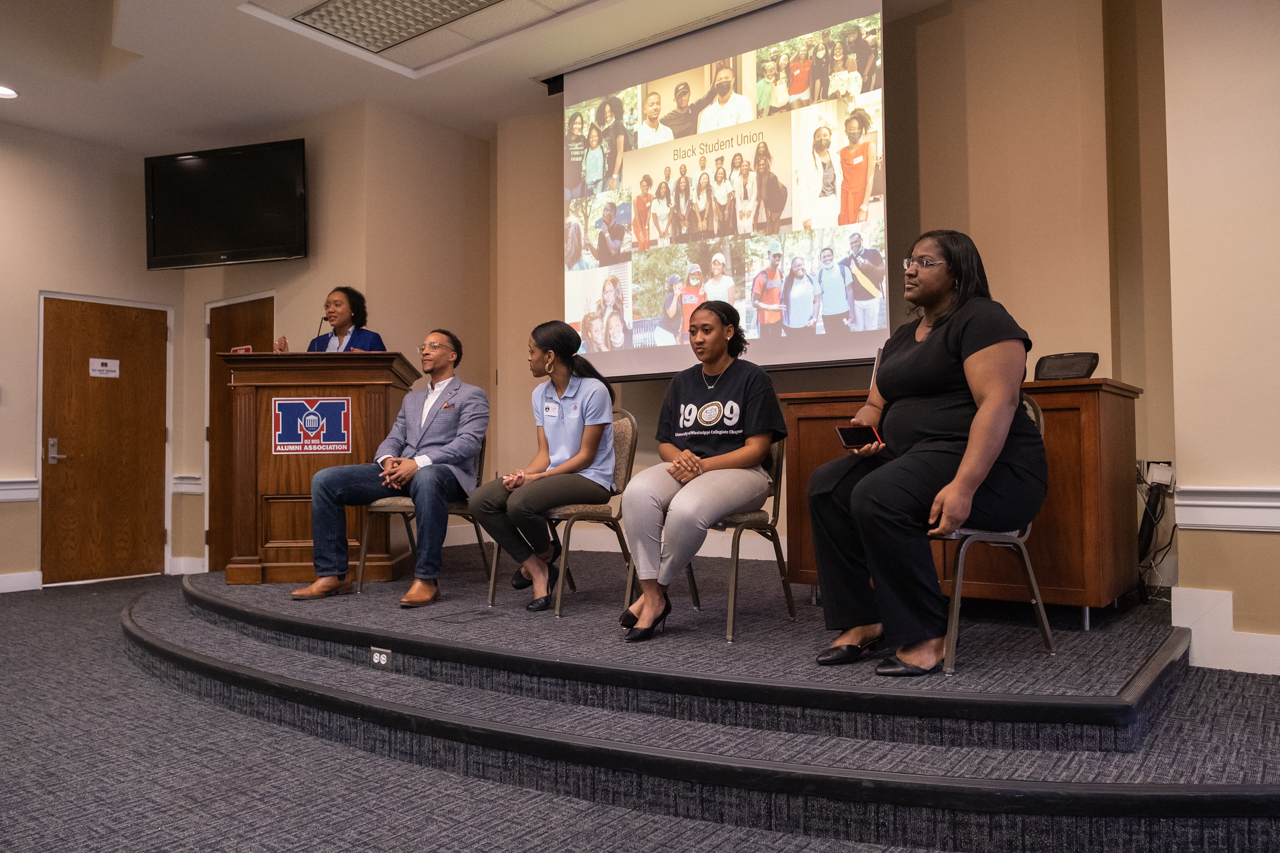
Shawnboda Mead, Vice Chancellor for Diversity and Community Engagement, spoke about the growth of her division. When Mead started working for the Center for Inclusion and Cross Cultural Engagement, her office consisted of herself and two graduate assistants. Her staff has now grown to 20 plus (including the Graduate Assistants), and the Center for Inclusion and Cross Cultural Engagement now employs a director, three assistant directors, a coordinator and four graduate assistants and has a permanent physical location in the Student Union.
“There cannot be diversity and inclusion work without community engagement work,” Mead said while describing the creation of the Center for Community Engagement.
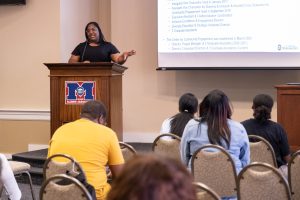
Mead also discussed all of the programs and activities organized by the Division for Diversity and Community Engagement.
The final section of Mead’s statement addressed three institutional priorities: institutional capacity for equity, cultivating a diverse and equitable community and fostering an inclusive campus climate. She described the individual equitable and action plans for each college on campus.
“This is a University of Mississippi plan too. This isn’t just a Division of Diversity and Community Engagement plan. Our chancellor and provost are in full support,” Mead said.
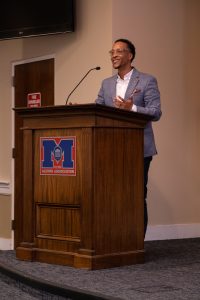
Next, Norris “EJ” Edney, the Assistant Vice Chancellor for Diversity and Inclusion, discussed his personal experiences at the University of Mississippi and the disconnect between the acceptance he felt while being recruited and his daily experience as a student. Edney’s address emphasized the importance of instilling a sense of belonging and self-efficacy in students. He described how the Center for Inclusion was created to meet those gaps for minority students.
“We have to do work to show people what the university is now,” Edney said, “ (and to) remove barriers to recruitment access.”
He highlighted the MOST conference and organizations that support black students excellence and success on campus, including mentorship programs and partnerships with businesses helping students secure internships.
Edney also encouraged alumni to explore opportunities to partner with the university to help students, such as mentorships or giving keynote speeches. Edney concluded his time by mentioning events hosted by the Center for Inclusion and Cross Cultural Development that are tailored to other minority groups on campus.
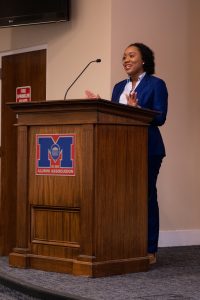
Dee Harris, President of UM’s chapter of the NAACP and BSU Vice President, and Jon’na Bailey, BSU President, gave reports on recent actions by both student groups and made a call to action to alumni.
Harris assumed her position as NAACP president at the end of her freshman year and as a first generation high school graduate and college attendee. She said that her vision for the NAACP was to be a resource to other students like her.
“I always said I wanted to be the Black girl that would make the road easier for the next group of Black girls,” Harris said during the Q&A portion of the forum.
As a member of the Council of Black Student Affairs, Harris was instrumental in starting monthly meetings with Chancellor Glenn Boyce to discuss minority student issues.
Jon’na Bailey assumed her position as a sophomore. Under her leadership, BSU hosted a welcome week for organizations under the Council for Black Student Affairs intended to reach out to students and determine current issues. Bailey also described the recent approval by Boyce to begin work on proposing a multicultural center.
Both women discussed the various ways in which alumni could offer support to current Black students. Bailey emphasized the importance of “increasing our resources, not necessarily monetarily but time,” asking alumni to help students learn how to take practical skills outside of the campus by providing mentorships, workshops, and keynote addresses.
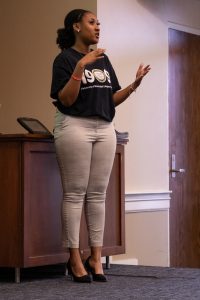
“In order for us to go anywhere, we have to know where we come from,” Harris said, as she recognized that alumni could also be a valuable resource for speaking about the history of the university.
The individual presentations were followed by a period during which the audience could ask questions of the four speakers. Edney and Mead both explained how the university had shown clear support for minority engagement both through monetary and verbal efforts, but emphasized that diversity and inclusion divisions are often understaffed, face fundraising challenges and are challenged by anti-diversity, equity and inclusion legislation.
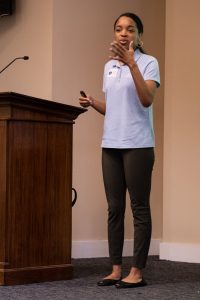
This time eventually transitioned into a discussion between alumni, Bailey and Harris.
“As black students, we don’t have a place to go to just be our authentic black selves. In order to have a great experience here, we need a space,” said Bailey, who went on to explain that while the university offers internal support, having external support from alumni and building community connections will be invaluable.
Alumni also volunteered their own suggestions. Many had been unaware of the recent progress made by the university and student activities.
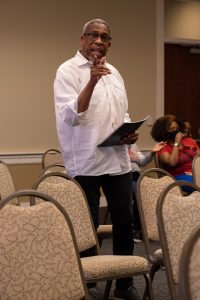
Doyal Siddell stood and suggested the creation of a quarterly newsletter to update alumni, as he said many would be happy to volunteer their time if they knew students were putting in their own work.
Teresa Jones suggested creating a database of black alumni who were open to contract from students as she had done for the law school.
While many alumni were amazed by the progress the university has made and the accomplishments of the student leaders, Ruth Ball, president of the Oxford/Lafayette chapter of the NAACP reminded all in attendance that “we still have a long ways to go,” mentioning the recent number of voting laws passed across the country in one of the final statements of the afternoon.
Ball also stated, “If you don’t have a vision, your people perish” and encouraged Harris and Bailey to continue their work as student leaders.
The State of the University Forum then concluded with a final thank you by Teresa Jones, and the alumni and speakers mingled before leaving to attend the Battle of the Greeks Step Show in Fulton Chapel.





